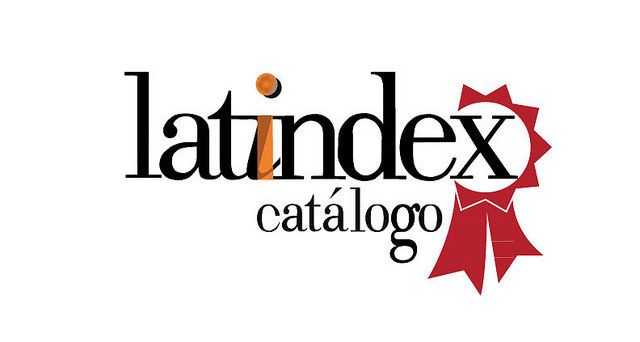“They are spraying the coronavirus”
Of conspiracy rumors in social media and their political uses in Mexico
DOI:
https://doi.org/10.29340/en.v6n11.293Keywords:
rumor, coronavirus, verisimitude, conspiracy theory, MexicoAbstract
This article examines a rumor depicting the government’s sanitization measures, instead, as strategies to infect and kill off the population using the coronavirus. It has circulated in various regions in Mexico generating multiple collective protests. Setting aside any condemnation of rumors as false, our study has opted to consider this phenomenon as a way to understand what is plausible and what is implausible in a given context. It presents the versions circulated within San Antonio de la Cal, Oaxaca along with the narrative elements granting it plausibility or implausibility. The study is based mostly on an analysis of conversations generated on Facebook and personal interviews. It demonstrates how the rumor is linked to conspiracy narratives and to local tales expressing distrust of the authorities. In addition, the article analyzes the political use given to this rumor by parties opposing said authorities.
Downloads
References
Arcega, Francisco, Liliana Cruz, Héctor Hernández y Brenda Neri (2021). Construcción de la verosimilitud del rumor de la fumigación del coronavirus en redes sociodigitales en México. Tesis de la licenciatura en Comunicación Social. México: Universidad Autónoma Metropolitana-Xochimilco, asesorada por Margarita Zires y Silvia Gutiérrez.
Boullier, Henri, Baptiste Kotras e Ignacio Siles (2021). “Uncertain Knowledge. Studying ‘Truth’ and ‘Conspiracies’ in the Digital Age”, RESET, 10. https://doi.org/10.4000/reset.2750 DOI: https://doi.org/10.4000/reset.2750
Campion-Vincent, Véronique (2005). “From Evil Others to Evil Elites: A Dominant Pattern in Conspiracy Theories Today”, en Gary Alan Fine, Véronique Campion-Vincent y Chip Heath (eds.). Rumor Mills. The Social Impact of Rumor and Legend, pp. 103-122. New Brunswick: Aldine Transaction. DOI: https://doi.org/10.4324/9781315128795-11
Douglas, Karen, Robbie Sutton y Aleksandra Cichocka (2017). “The Psychology of Conspiracy Theories”. Current Directions in Psychological Science, 26(6), pp. 538-542. https://doi.org/10.1177/0963721417718261 DOI: https://doi.org/10.1177/0963721417718261
Farge, Arlette y Jacques Revel (1998). Lógica de las multitudes. Secuestro infantil en París 1750. Buenos Aires: Homo Sapiens.
Kapferer, Jean-Noel (1989). Rumores. El medio de difusión más antiguo del mundo. Buenos Aires: Emecé.
Rouquette, Michel-Louis (1977). Los rumores. Buenos Aires: El Ateneo.
Shibutani Tamotsu (1966). Improvised News: A Sociological Study of Rumor. Nueva York: Bobbs-Merril Company.
Taïeb, Emmanuel (2010). Logiques politiques du conspirationnisme. Sociologie et Societés, vol. 42 (2), pp. 265-289. https://doi.org/10.7202/045364ar DOI: https://doi.org/10.7202/045364ar
Waisbord, Silvio (2022). “Más que infodemia. Pandemia, posverdad y el peligro del irracionalismo”. InMediaciones de la Comunicación, vol. 17 (1), pp. 31-53. https://doi.org/10.18861/ic.2022.17.1.3227 DOI: https://doi.org/10.18861/ic.2022.17.1.3227
Zires, Margarita (2001). Voz, texto e imagen en interacción. El rumor de los pitufos. México: Miguel Ángel Porrúa y Universidad Autónoma Metropolitana.
— (2005). Del rumor al tejido cultural y saber político. México: Universidad Autónoma Metropolitana-Xochimilco.
— (2017). “Rumores en redes sociales en contextos de violencia. Veracruz-agosto de 2011”. Razón y Palabra, vol. 21, núm. 96, pp. 723-760.
— (2021). “‘El coronavirus no existe’. ‘Los están matando’. De rumores y lógicas de pensamiento conspiracionista en México”, en Gerardo Gutierrez Cham, Susana Herrera Lima y Jochen Kemner (coords.). Pandemia y crisis: el covid-19 en América Latina. Guadalajara: Calas-Universidad de Guadalajara.
Published
Issue
Section
License
Copyright (c) 2023 Encartes

This work is licensed under a Creative Commons Attribution-NonCommercial 4.0 International License.
Aviso de derechos de autor
- Los autores/as conservan los derechos de autor y ceden a la revista el derecho a la primera publicación con el trabajo registrado con la licencia de atribución Creative Commons, que permite a terceros utilizar lo publicado siempre que mencionen la autoría del trabajo y a la primera publicación en esta revista
- Los autores/as pueden realizar otros acuerdos contractuales independientes y adicionales para la distribución no exclusiva de la versión del artículo publicado en esta revista (por ej. Incluirlo en un repositorio institucional o publicarlo en un libro) siempre que indiquen claramente que el trabajo se publicó por primera vez en esta revista.
El material puede ser copiado, distribuido, comunicado, ejecutado públicamente. Se pueden hacer obras derivadas de él. No se puede utilizar para fines comerciales. Se debe reconocer y citar la obra de la forma en que tú especifiques.










